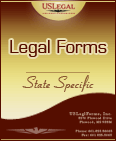License for the use of a Copyright

A license is a privilege entitling the licensee to do something that he would not be entitled to do without the license. To license or grant a license is to give permission. A license authorizes the holder to do something that he or she would not be entitled to do without the license.
A Copyright is a form of protection provided by the laws of the United States (title 17, U. S. Code) to the authors of "original works of authorship, "including literary, dramatic, musical, artistic, and certain other intellectual works. This protection is available to both published and unpublished works. Section 106 of the 1976 Copyright Act generally gives the owner of copyright the exclusive right to do and to authorize others to do the following:
" To reproduce the work in copies or phonorecords;
" To prepare derivative works based upon the work;
" To distribute copies or phonorecords of the work to the public by sale or other transfer of ownership, or by rental, lease, or lending;
" To perform the work publicly, in the case of literary, musical, dramatic, and choreographic works, pantomimes, and motion pictures and other audiovisual works;
" To display the work publicly, in the case of literary, musical, dramatic, and choreographic works, pantomimes, and pictorial, graphic, or sculptural works, including the individual images of a motion picture or other audiovisual work; and
" In the case of sound recordings*, to perform the work publicly by means of a digital audio transmission.

Download: License for the use of a Copyright
Available from: USLegalForms.com
SKU: US-01784BG
NOTICE: The information and links contained on this web page are intended only to be merely informative and are NOT intended to provide legal advice to any person/entity. Consult with and seek the advice of a qualified lawyer. E.&O.E. Click here for important legal disclaimer.

